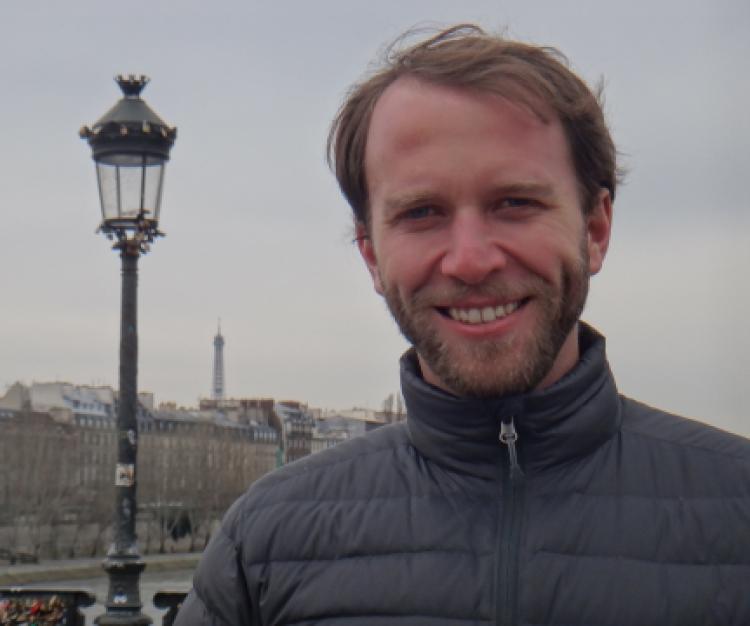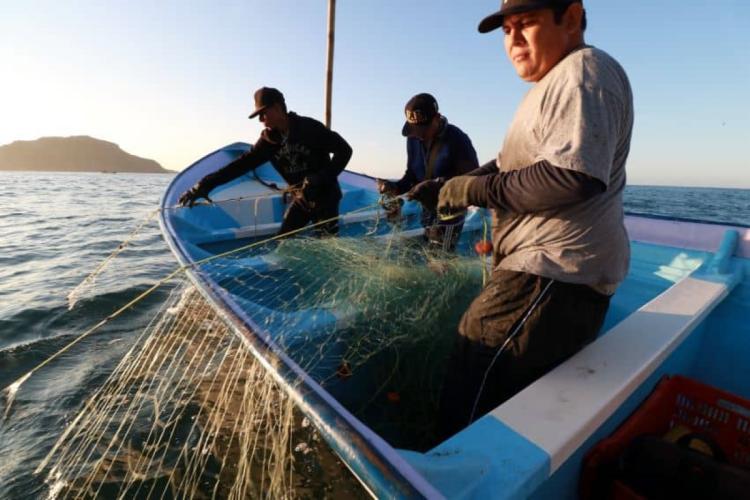CU Boulder researcher Steve Miller argues for deeper insight into how people understand risk before shocks, especially those related to climate change, happen in global systems
The world is becoming increasingly interconnected, which has many benefits. Shoppers in Colorado, for instance, can enjoy tropical fruits in the dead of winter, thanks to vast and complex trade networks.
But this interconnectivity is also risky. A war or drought in one country can have devastating consequences on the availability and affordability of food thousands of miles away. People and governments typically react to these shocks after the fact, such as by implementing trade bans or adjusting crop production, to help mitigate the harm locally.
However, people and governments also try to manage risks proactively, before such shocks occur, which can then affect the broader system. For example, a coastal fishing community worried about the risk of fish-stock collapse because of climate change might diversify its economy by expanding into ecotourism. Their decision to export fewer fish could, in turn, affect the global fish market.

In a recent publication, Steve Miller, a CU Boulder assistant professor of environmental studies, argues for researching people's perceptions of risk before shocks occur, especially those related to climate change.
In this way, risk is not only a byproduct of a globally interconnected system—it’s also a force that acts upon it, a group of interdisciplinary researchers argues in a new paper published in the journal Nature Sustainability.
“If we want to understand the effects of a risk like climate change, we can't just look at how connections like trade can help us buffer the effects of shocks—for example, droughts and wildfires—after they happen,” says lead author Steve Miller, an assistant professor in the University of Colorado Boulder Department of Environmental Studies. “We also have to look at how risks of those events might change where people, goods and information go even before shocks occur.”
The idea that an increasingly interconnected global system creates new sets of risks is widely accepted and serves as the backdrop for many studies and policy decisions. However, the reverse—that risk can change the system itself—often gets overlooked.
To truly understand and assess risks—such as those posed by climate change—the world needs to be paying attention to both, the researchers argue.
“If we don't account for those feedbacks, we're not going to get the costs of climate change right, and we might make some mistakes in how or how much we choose to invest in mitigation and adaptation,” says Miller.
Perceiving and managing risk
Consider the effects of climate change on food availability, for example. Researchers need to understand how crop failure in one nation might ripple through the global trade network and cause severe food shortages elsewhere in the world.
But they also need to back up, long before the crop failure occurs, and look at how governments, farmers, distributors and consumers perceive the risk of climate change-related crop failure—and what they choose to do about it, says Miller. Their efforts to manage risk—such as planting more fail-safe crops or buying more protective insurance policies—ultimately feed back into and alter the broader system.
Beyond that, changes made because of perceived risk may have consequences for both people and the environment—and these downstream effects are not well understood. For instance, the coastal fishing community that begins to rely more heavily on ecotourism must now grapple with new types of risks, such as an economic downturn that dampens tourism.
Risks are an outcome of a global, complex system—but they also play a role in shaping it.
“It's a simple point, but there's lots to do,” says Miller.
Future research
The new paper stemmed from a series of backyard chats between Miller and co-authors Laura Dee, a CU Boulder assistant professor in the Department of Ecology and Evolutionary Biology, and Eréndira Aceves-Bueno, an assistant professor in the University of Washington’s School of Marine & Environmental Affairs.

Members of a commercial fishing cooperative in Mazatlán, Mexico, pull their nets. (Photo: Eduardo Esparza/Mexico News Daily)
The conversation centered around how some lobster fishers and fishing cooperatives in Mexico, Australia and New Zealand primarily sell their catch to markets in China. Each fishery faces many risks, from fluctuations in local lobster populations to changing consumer tastes in China to global supply chain issues.
“How these people understand and respond to those risks got us thinking about the more general challenge of perceiving and managing risks in globally linked systems like our food systems,” says Miller.
To think through this complex topic, the trio looped in other researchers at CU Boulder—Meghan Hayden in ecology and evolutionary biology and Amanda Carrico in environmental studies—as well as experts at other institutions: Uchechukwu Jarrett, an associate professor of practice in economics at the University of Nebraska Lincoln and Kate Brauman, deputy director of the Global Water Security Center at the University of Alabama.
Together, the collaborators produced a “Perspective,” a type of peer-reviewed paper that’s intended to stimulate discussion and inspire new approaches. More specifically, the co-authors hope their paper leads to more research on how people perceive and react to risks in systems that are connected by both environmental and socioeconomic links across the globe.
To that end, they suggest some possible research opportunities for theorists, empiricists, behavioral scientists and experts in particular types of connectivity, such as markets or species migration. For example, they propose lab or field experiments that involve presenting farmers with various risk scenarios, then asking them to explain their thought-processes as they assess each one.
“We need a lot more research,” says Miller. “It's a clear case where we need lots of expertise from many disciplines, and folks with transdisciplinary skills to bring it all together.”
‘Make better decisions’
More broadly, the co-authors hope to draw attention to the push-pull relationship between complex systems and risk. Each can affect the other, and their interactions are far from straightforward.
In the future, they say, those working in research, industry, government agencies and non-governmental organizations (NGOs) must focus on both if they hope to tackle complex global challenges like climate change.
“If we get better at embedding risk in our models of how these systems work—like food systems, trade in primary resources like timber, or ecotourism—I think we'll get more credible predictions of how things like climate change will impact us and the ecosystems on which we depend,” says Miller. “With those better predictions, we can make better decisions.”
Did you enjoy this article? Subcribe to our newsletter. Passionate about environmental studies? Show your support.



